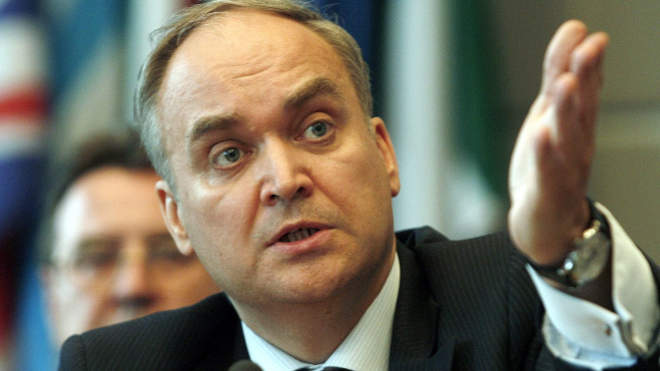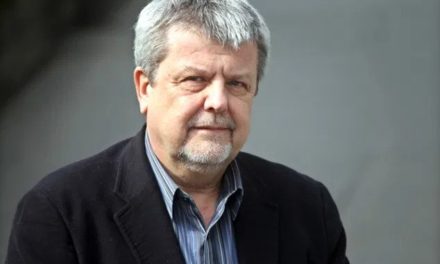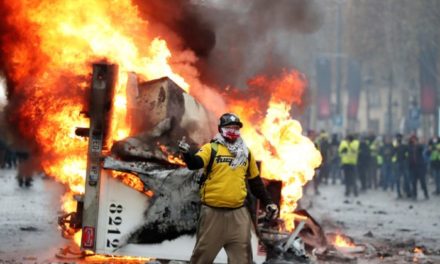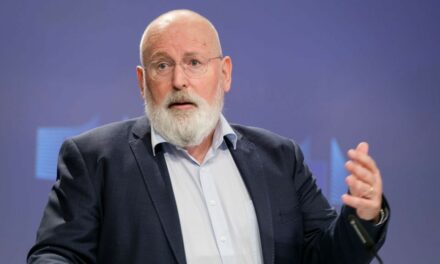The use of any nuclear weapon can quickly turn from a local or regional conflict into a global one, writes Anatoly Antonov in his article published on The National Conservatie, which we publish in its entirety.
***
As Henry Kissinger wrote in 2014, “Demonizing Vladimir Putin is not politics; it is an alibi for its absence.”
I am writing this article for two reasons: first, this October will be the sixty-year anniversary of the Cuban Missile Crisis, when the Soviet Union and the United States were on the brink of nuclear war. This gives us the opportunity to take a closer look at the foreign policy lessons that the two great powers learned from that dramatic time.
I believe that any American will agree with me that we cannot allow that explosive situation to happen again. But it is also important that not only Russia and the USA, but also other nuclear powers confirm in a joint statement that the nuclear war cannot be won and therefore must never be fought.
Second, we are witnessing the growing concern of the international community and American experts about the possibility of a nuclear conflict between Moscow and Washington. This question has become even more acute in recent days, when senior officials of the US administration have sent us direct signals, warning us against using nuclear weapons in the special military operation in Ukraine. What's more, threats have also started from the official bodies. Princeton University even predicted that millions of Americans and Russians would die in mutual nuclear strikes. Sometimes it seems that we are returning to the McCarthyism years in this regard: one can hardly forget James Forrestal, the former US Secretary of Defense, who jumped out of the window while shouting: "The Russians are coming".
The American media abounds in the publications of pseudo-experts who do not know history and misinterpret the present, wrongly comparing the current situation with the Cuban Missile Crisis.
However, the statements of some politicians and the media that American-Russian relations are experiencing an unprecedented crisis are acceptable. Let me remind everyone that the bilateral dialogue has not been going smoothly for quite a few years now, but no one would have thought that it would reach such a dangerous point.
Everything that has been created through many years of hard work, including political, economic, cultural, scientific and educational relations, has been consigned to the dustbin of history.
Arms control shows a deplorable, abandoned picture. The ABM and INF treaties have sunk into oblivion. The Open Skies Treaty has practically ceased to exist. The duration of the New START Treaty is coming to an end, and as we have already said several times, the American side is not fully implementing it. The nuclear non-proliferation treaty is experiencing serious upheavals. No one can predict what will happen next.
I must remind readers that all of this is the result of US policy. Let me elaborate on my point: Washington has withdrawn from the treaties to gain security advantages, especially vis-à-vis Russia, and is constantly looking for opportunities to achieve global military dominance.
In recent decades, NATO's military machinery has approached Russia's borders in several "waves" - all of which posed a powerful threat to my homeland. How should we have reacted?
We have warned our colleagues that such steps are counterproductive, increase the risk of an arms race, and we cannot ignore the worsening threats along Russia's borders, especially along our western borders. I remember long hours of meetings at the NATO headquarters, where I had to participate several times in discussions about the harmfulness of global missile defense, the importance of respecting international commitments related to strategic stability, and the danger of deploying short- and medium-range missiles in Europe. Russian appeals proved futile.
The final straw was when NATO began military preparations for Ukraine and installed a regime in Kiev that wanted to start a bloody war against Russia.
Today, Russia, my country, is accused of all crimes. They claim that we have sparked an armed conflict in Europe. But let me ask you:
what did the US do to implement the Minsk agreements? Why did Washington remain silent for eight years and why did it not stop Kiev when Ukrainians and Russians were being killed in the Donbass? How could he ignore the terrible tragedy in Odessa when dozens of people were burned alive? Where were the international humanitarian institutions? Why did an administration that prioritized human rights allow such crimes?
We asked these questions to American politicians several times, but we did not get any meaningful answers beyond loud slogans, and Ukraine is still at odds with Russia. It is now clear that the United States is directly involved in the military actions of the Kiev regime. Washington openly supplies Ukraine with lethal weapons and performs intelligence tasks; they jointly plan military operations against the Russian armed forces and train the Ukrainians. It seems that Russia's patience is being tested, they are watching how long it will not react to blatantly hostile actions and attacks. In fact, Washington is pushing the situation towards a direct confrontation between the nuclear powers, and this has unforeseeable consequences. US officials continue to escalate the situation, scaring the American and international public with false Russian "nuclear threats" and twisting the statements of the Russian leadership.
I would like to emphasize that our country's conditions regarding the use of nuclear weapons have not changed. In this regard, we continue to strictly adhere to the 2014 Military Doctrine and the 2020 Principles of our State Policy on Nuclear Deterrence.
These documents are also available to the public. We are not threatening anyone. But we confirm that, as President Vladimir Putin said on September 21, Russia is ready to defend its sovereignty, territorial integrity and people with all of our weapons systems.
What is so aggressive about this statement? What is unacceptable? Wouldn't the United States do the same if faced with an existential threat?
I would add that some American politicians are wrong to think that our willingness to defend our territory does not apply to Crimea or those territories that become part of Russia based on the free expression of the will of the people.
I would also like to warn the American military leadership against their mistaken assumption that a limited nuclear conflict is possible, that is, a nuclear war can be kept under control.
They must be hoping that the US will be protected by an ocean in the event of such a conflict in Europe with British and French nukes. I would emphasize that this is an extremely dangerous "experiment", because the use of any nuclear weapon can quickly turn from a local or regional conflict into a global one.
I would like to believe that, despite all the difficulties, none of us wants to cross the threshold that leads to the deep darkness of nuclear war. But don't threaten us.
It is now difficult to predict how far Washington is willing to go to poison Russian relations. Will the leading circles of the USA be able to give up their plans aimed at dismembering our country?
The recent summit of the Shanghai Cooperation Organization and the week of the 77th session of the UN General Assembly proved that a significant part of the planet is not satisfied with the world order that emerged after the collapse of the Soviet Union. We can witness that the majority of the global community is looking for a way to establish a fair system of international relations, which would have neither first nor second-order states. We firmly support the world order based on international law, the UN Charter, and the principle of the indivisibility of security.
Featured Image: Anatoly Antonov, Russian Ambassador to the USA / Hans Punz/AP Photo













